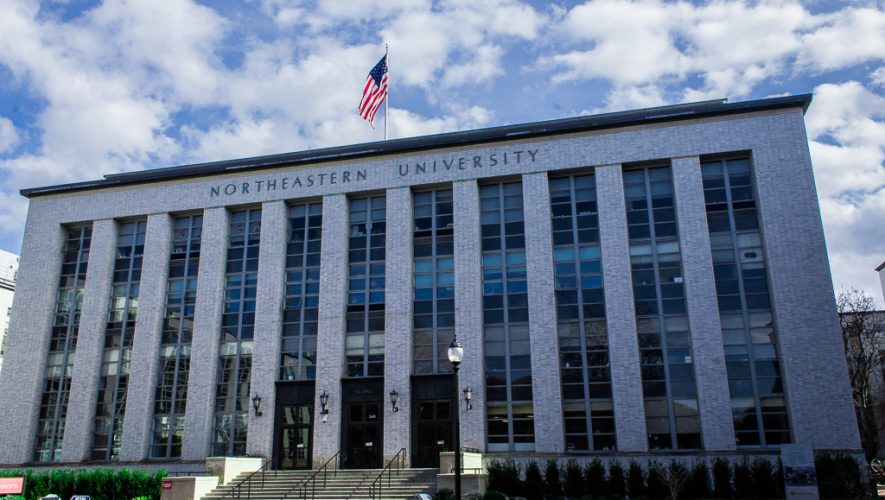The United States’ higher education system is often cited as the best in the world. Since its conception with Harvard University in 1636, it has ballooned to over four thousand universities and colleges. College degrees in the US have become viewed as a tool for economic prosperity and social mobility. As the economy has changed, so too has the utility of college degrees. In the past few decades, we have seen STEM-related majors exploding in proportion to the transition to a knowledge economy. However, the cost of attendance has not risen in proportion to the average income, making higher education more of a financial burden. As a result, student loan debts have almost tripled in the past ten years—from $619 billion in 2008 to $1,524 billion in 2018. Attending college seems to have, over time, become less and less financially viable, yet enrollment continues to increase. Even those who are aware of the costs cling to the idea that the university system is a site of intellectual liberation, yet in many ways this freedom has come to be dominated by economics. These poor economics have turned what was once a part of the ladder of socioeconomic mobility into a site of economic and social domination.
Critical Theory and Herbert Marcuse
Critiques of such financial and social domination of society find their origins in theories like those of Karl Marx, but were adapted to the problems of modern society by the Frankfurt School of political theorists. Building off of the foundation of the analytical methods laid down by Marx and Sigmund Freud, the Frankfurt School developed critical theory to critique the Marxism-Leninism and capitalism of their time. German philosopher Max Horkheimer describes critical theory as an attempt “to liberate human beings from the circumstances that enslave them.” Modern followers of this tradition include prison abolitionist, Angela Davis and proponent of deliberative democracy, Jürgen Habermas. One of critical theory’s founders was a German-American, Herbert Marcuse, whose critique of the forms of repression in the predominant capitalist (United States) and Marxist-Leninist (Soviet Union) societies of his time inspired generations of philosophers.
In his most famous work, One-Dimensional Man, Herbert Marcuse argues that a “democratic unfreedom prevails in advanced industrial society.” He claims that ideally, as society has been able to increasingly satisfy the basic needs of the individuals within it, “individual autonomy” would become possible. Instead, as the vital needs—basic requirements to live—of society have been filled, new false needs have been created to continue the repression of humans. The repressive satisfaction of these false needs has prevented people from forming a consciousness surrounding their economic domination. These false needs are societally imposed to promote a sense of class equalizations and therefore destroy thoughts of liberation. Marcuse argues that new “modes of realization” are needed to reveal the domination of this new society.
These modes, Marcuse claims, may only be defined in the negative to negate the current accepted liberties and freedoms. His conception of economic freedom therefore would be “freedom from the economy.” False needs are also implanted by society into the individual, who may not deviate for fear of societal condemnation. Ascribing to false needs subjugates desires for individuality;Marcuse uses the examples of the automobile, hi-fi set, split-level home, and kitchen equipment.
Economic Domination in our University System
The economic unfreedom of student debt is a clear example of Marcuse’s theory in the American university system. By characterizing the modern university system as a false need, one can see how higher education has become a tool to force individuals back into economic dependency and complacency. In the new knowledge-based economy that has emerged through the tech boom, new forms of domination have emerged (i.e. internet, media, and software). To be part of the economy and continue to be part of society, one must have a job to purchase certain goods that satisfy false needs. However, in a reality of more productive and efficient manufacturing within the US and cheap labor abroad, it should be easier, not harder, to consume. Domination has found new mediums in the knowledge economy, trapping individuals in a cycle that starts with the University.
Knowledge-based jobs increasingly require university degrees to show that one is qualified. This idea of degree-based qualification has extended beyond just the knowledge economy into retail and food service industries and other sectors. By some estimates, in 2020, 65 percent of all jobs in the US will require some college education. To attain a degree, individuals have to participate in the increasingly controversial college admission process.
Here, a process that purports to promote class equality can be seen to instill a sort of false desire that is pervasive throughout society. Obtaining a degree can often seem like an appealing path to increase or maintain class status. The recent admission scandal involving many top-tier universities shows that individuals will go to immense lengths to attain degrees that, in some cases, are not vital. The wealthiest in the nation spend thousands to millions of dollars to secure a better education for their children. For example, Olivia Jade Giannulli—daughter of Lori Laughlin, who paid $500,000 to ensure her daughters’ admission to the University of Southern California—had a successful career as an “influencer” that did not necessarily require a college education. Among the less affluent the opposite takes place: many incur financial burden to pursue degrees at prestigious universities.
The nation’s universities of choice are increasingly more highly ranked. As college enrollment has spiked over the decades and recently flatlined—due to demographic change from stagnant generational growth—college admissions at many lower-ranked universities across the nation have actually fallen. For example, Southern Illinois University has seen its attendance at its Carbondale campus fall from twenty-four thousand in 1990 to fifteen thousand in 2018. All the while, applications to more expensive flagship public universities and prestigious private universities have exploded. This is for reasons little more than the school name and ranking, even though this is a system that can be gamed like Northeastern University has in the past decade. Many of those who graduate with a degree, if they graduate at all, do not work jobs that require a college education. According to the US Department of Labor, in 2008, seventeen million college graduates had jobs that did not require any college education. Many of these overqualified graduates work jobs such as bartending, that do not have incomes that can properly pay off the loans incurred.
A pervasive culture of false need for a college education among all classes has formed. Through various legitimate and illegitimate avenues, individuals pursue access to an education from prestigious universities at high economic cost. In many ways, this cost draws individuals into economic domination. There has also been a growing amount of prestige associated with degrees that are increasingly more expensive and dubiously necessary, hinting at a cultural shift. This cultural shift is the transformation of education into a false good much like Marcuse’s Hi-Fi audio sets.
When the Economic becomes Social
Many, even Herbert Marcuse, claim that university education, despite the economic consequences, serve as a site of intellectual liberation. This argument holds that the freedom of expression within universities allows space for independent research and brings rise to unique claims that challenge society. However, the goal of free expression is not achieved in the university and has rather been constrained by the pervasive economic and social domination.
Political suppression, whether intentional or not, is common in many universities. UC Berkeley was embroiled in controversy after the administration capitulated to student demands to not let Milo Yiannopoulos speak. While this may not seem apparent now, many older feminist philosophers and political scientists were not able to gain their tenure through publishing feminist work. Further, the need for publication in academia constrains the expression of many views among academic circles. Journals inherently compartmentalize subjects and often prevent new forms of thought. Many of these instances of curtailing liberating thought come from economic need to maintain a stable job or the social and economic desire to maintain a positive political image.
The pervasive capitalist system regulates the expression of academic work. What defines many scientists’ careers is the ability to receive grant money to fund their research. University and third-party interests make grant money available for specific fields, often forcing students and professors down certain paths. In recent years there has been a drought in federal funding for studies that even mention climate change.
Furthermore, the regimentation of many degree programs often limits the uniqueness of one’s degree. Many universities, such as Northeastern, direct students toward study that will find them jobs in that field, limiting the creative output of the university toward already defined fields controlled by the existing system.
The co-op program at Northeastern gives its students work experience while still in college. While an excellent resume builder, co-op also restrains the future outcomes of the student to the fields that already exist. If emerging fields or opportunities in research stages exist, there will not be co-op positions. For those students who want to create their own paths, this focus on practicality limits their choices. And while this program is optional, 96 percent of students from the class of 2016 still participated in at least one co-op.
Students who want to create their own path have become entrapped by the system. The explosion of the number of business, health sciences, and computer science majors is an indicator of this domination. While the shift is partially explained by the growth of the corresponding industries, it has caused the decline of other degrees. The number of degrees awarded in less profitable but societally important fields such as education have stagnated and then fallen. For high income fields such as medicine, the number of applications to medical school has increased by 35 percent between 2006 and 2016, but the acceptance rate has fallen as the growth in the number of available seats has not kept up. If a university was trying to create new ideas and explore new fields, these trends would not be as extreme. Students have increasingly had their interests subverted for the needs of the economy stripping the university of its position as an institution of free thought.
As a result, the university system, despite attempting to promote free expression, actually works as a part of the dominating system. It provides a space for those who wish to be free and subverts their desires into false needs given by the system.



